This tweet from Donald Trump’s social media director Dan Scavino caught our eye, but we’re not sure he’s watched it.
It’s a clip from 1991 where Trump testified in front of the House Budget Committee — chaired by New Jersey Democrat Frank Guarini — where he proceeded to bash the Tax Reform Act of 1986 championed by Ronald Reagan and argue that income taxes need to be higher to help spur investment into real estate.
In other words, thanks for the reminder that Trump used to be a Democrat?
1991: The House Task Force on Urgent Fiscal Issues needed EXPERTS! They called upon @realDonaldTrump. #Trump2016https://t.co/AOZG7TZGwT
— Dan Scavino (@DanScavino) April 19, 2016
Transcript via CSPAN, with the part about raising income taxes highlighted in bold. Stick around until the end where Trump compared America in 1991 to the Soviet Union:
Well, first of all, I think I could say to Mr. Seidman, who I believe has done a really fantastic job while he was in government, that had the 1986 catastrophe of the tax reform act not been passed, I’m not sure that you’d know Mr. Seidman in the capacity of RTC; you’d know him in some perhaps more positive capacity, but not in the Resolution Trust. And I think in bringing that point up to Mr. Seidman before he tended to agree with me, I think. (Turns to Mr. Seidman.) Good. So this tax act was just an absolute catastrophe for the country, for the real estate industry, and I really hope that something can be done — as Congressman Thomas recently said, that something can be done to change at least parts of it, because it has taken all incentive away from investing in real estate, and real estate really means so many jobs.
I mean, you have a city called New York City, you have a City of Boston, you have other cities and so many other cities, but I can tell you from very personal knowledge, New York City has virtually no construction right now. And we’re not only talking about office buildings, of which there are many; we’re talking about housing, moderate-income housing, low-income housing, even high-income housing, where you create jobs, you create so many other things. They buy carpet, they buy furniture, they buy refrigerators, they buy other things that fuel the economy. And incentive has to be put back in to the construction of things that are needed, such as housing of all kinds.
I heard this morning that we’ve had the lowest number of houses built in terms of the housing since 1946 or 1947. And that’s not much of a tribute to this group of folks that are representing the country, unfortunately. I feel — you know, I feel very badly about it, everybody feels very badly about it. The fact is that the one word that nobody up on the panel has mentioned is the word depression, and I truly feel that this country right now is in a depression. It’s not a recession. People are kidding themselves if they think it’s a recession. You look at what’s happening in the automobile business and the — in the retailing business, and the retailing business in any part of the country virtually is a total disaster. But in the real estate business we’re in an absolute depression, and one of the reasons we’re there is what happened in 1986 — in addition to what Mr. Seidman said — is what happened in 1986 with the changes.
I really came on the basis that I wanted to — I’ll answer questions on it — but I wanted to discuss the Tax Act of 1986. Active-passive — you’re absolutely right — a hundred percent right, and something has to be done. It has to be brought back, it has to be reformed, it has to be taken care of. I think for certain types of building, such as housing, I think depreciation schedules should be very severely limited — cut, so that people have incentive to build housing as opposed to commercial, which really — again, the commercial is probably taken care of for a long while. The reason it’s taken care of for a long while, however, unfortunately, is the fact that the economy is so bad that there’s no reason for the commercial. And I think that gets taken care of and gobbled up very quickly had the — if the economy improved.
One of the big things that we don’t have today that we used to have and that was a very good thing for real estate, and that’s the whole word of syndication and investment. And if you’re a dentist, and you’re making 200 or $300,000 a year, and — you can’t invest now in real estate. The reason the stock market is artificially high, in my opinion, is there’s no other form of investment. I mean, you can’t put it into real estate, and you can’t put it into bonds. So people are putting it into a stock market — all the companies in the stock market are doing lousy, but their stock is high. And I think what we have is — when the stock market goes down by, let’s say, a thousand points in two days, which perhaps it might, then we’re in a full-scale depression, then everybody admits it. Then the politicians admit it, the President’s going to admit it, everybody’s going to admit it. And right now, the only thing that sort of keeps the word depression off their lips is the fact that we really have a 3000 stock market and people are surprised to see it, because the companies certainly aren’t doing very well within the market itself.
But the syndication of real estate was a very positive thing. And you can’t syndicate, you can’t have people putting up equity. That would take a lot of the strain off the banks if people could put up equity in the form of equity money for syndication, where you used to be able to go out and syndicate a piece of real estate, today you can’t. A lot of the strain that we’re talking about — liquidity crisis — a lot of the strain comes off the banks, and I think it could really open up a whole new market.
And the other thing is, frankly, by having cut the high income tax rates to 25 percent, as an example, people don’t have the incentive any more to invest. They’re saying, “Why should I take a chance on investing in low or moderate-income housing? I might as well just pay the tax.”
But the fact is, that 25 percent for high-income people — for high-income people — it should be raised substantially with the understanding that if you invest, you can get it down and down substantially below that number. The incentive was taken away when the tax rates came down for high-income people. And I say leave the middle, leave the low lower. But people with money have to have the incentive. The dentist, the doctors — they have to have the incentive to invest. And there’s no incentive.
So New York City desperately needs housing? There’s no housing being built. Every city needs housing now. There’s no housing being built. And I hope in Ways and Means they’re going to be able to do something with respect to housing, because if it’s not done, you’re just not going to have any construction jobs in this country. And New York City has the lowest number of construction workers I think since the Depression.
I was with a very, very capable firm the other day, the biggest construction firm in New York City — HRH. And — it’s called HRH Construction. And we were discussing what they had planned. They said they had not one building planned in New York City for the next two to three years.
Now, you think of that. Not one building planned. So you say that means not one electrical worker — I mean they’re just finishing up some buildings, and when those buildings are finished, there’s going to be nobody employed in the biggest industry in the country. Because construction is the biggest industry in the country. And there’s going to be virtually nobody employed.
So I just come — I was asked to come by the Chairman, and I make this plea that, if something isn’t done to put the incentive back — I mean, we’re no different right now than the Soviet Union. They have no incentive, and we have no incentive. And if something isn’t done to quickly put the incentive back, this country is going to be in very deep problems. It already is, but it’s going to get far worse.
Recommended
***

















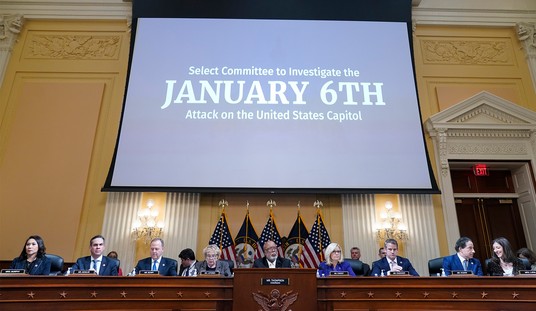


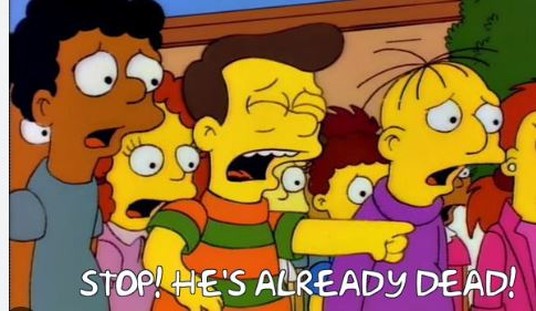
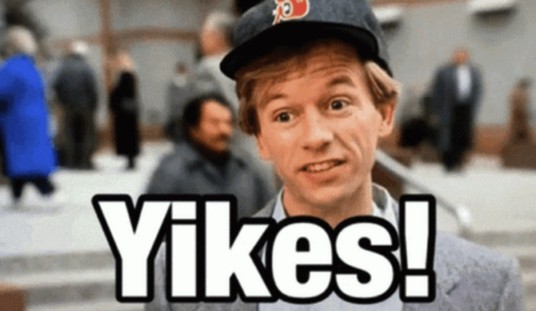
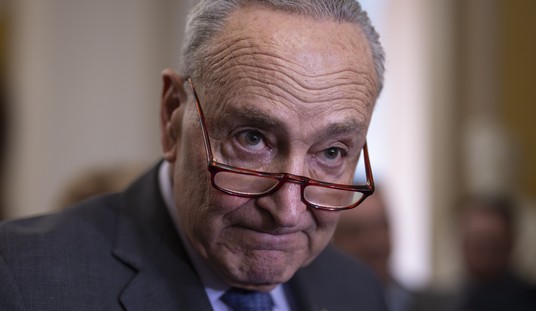
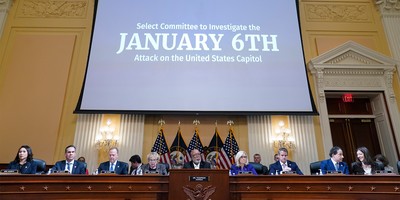
Join the conversation as a VIP Member